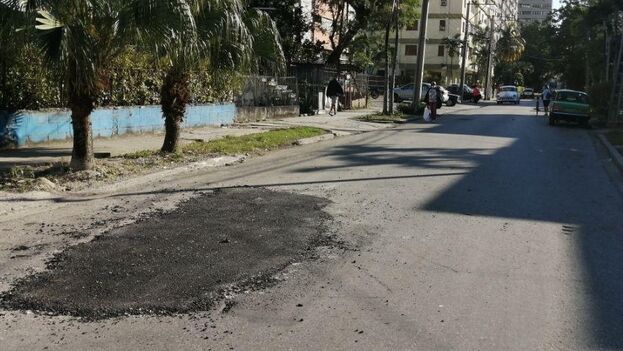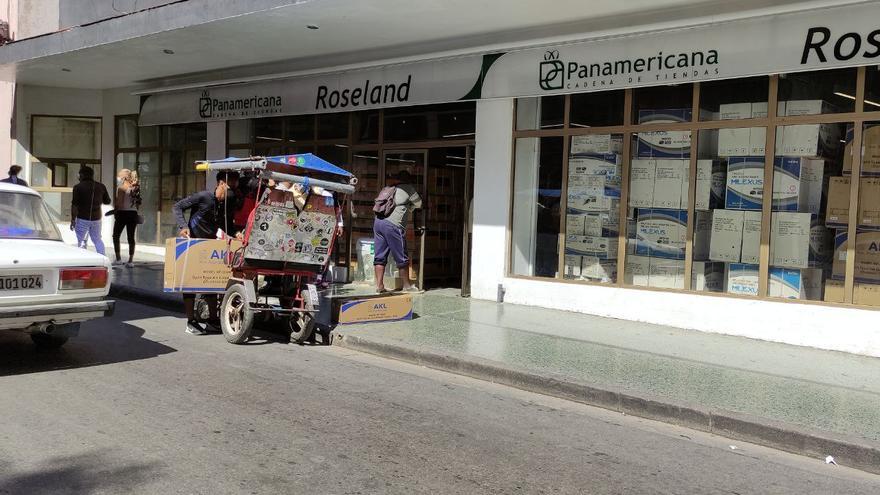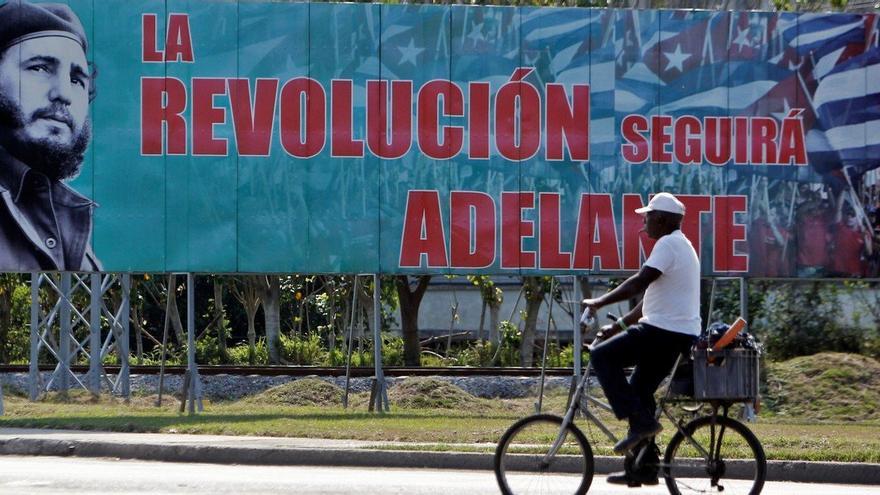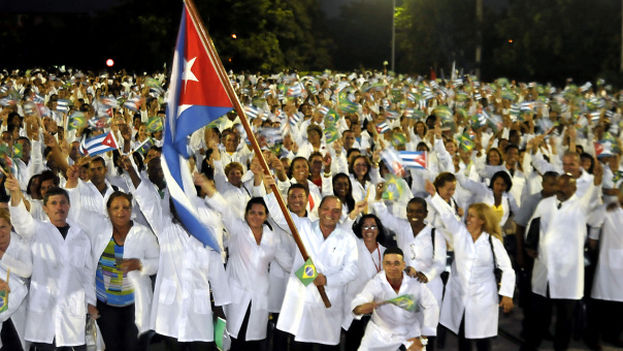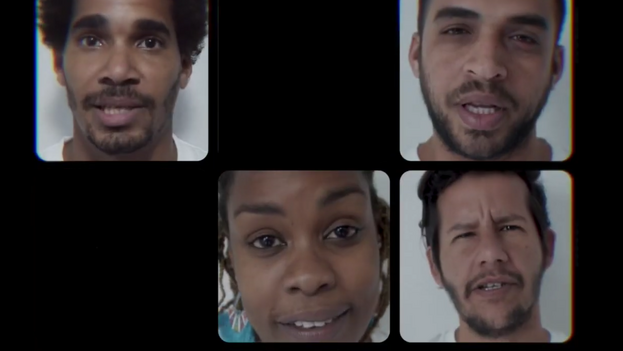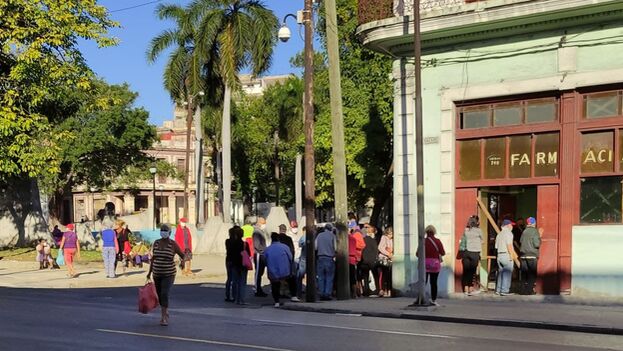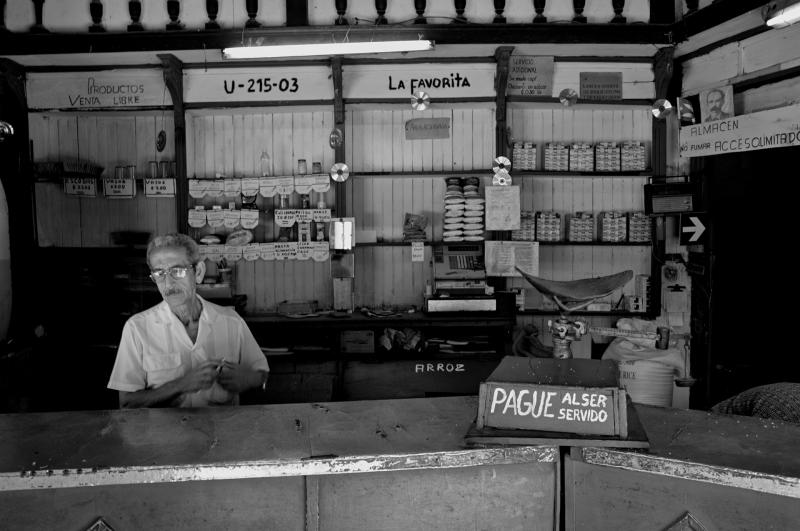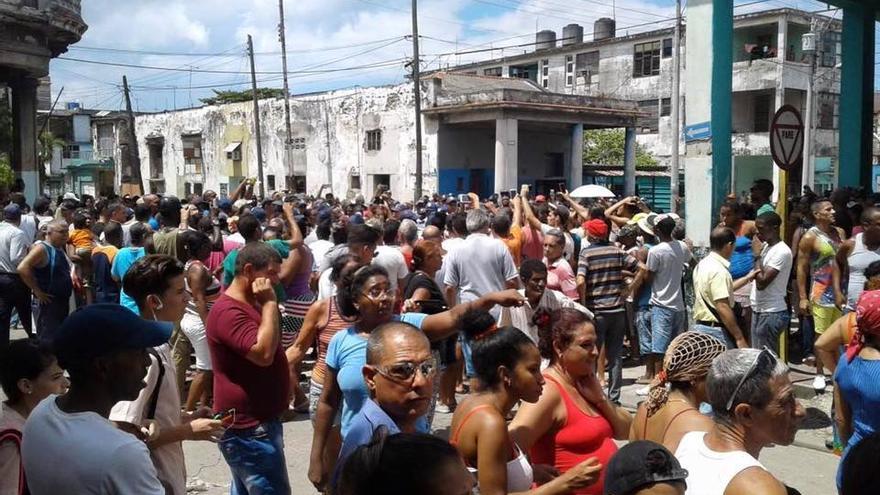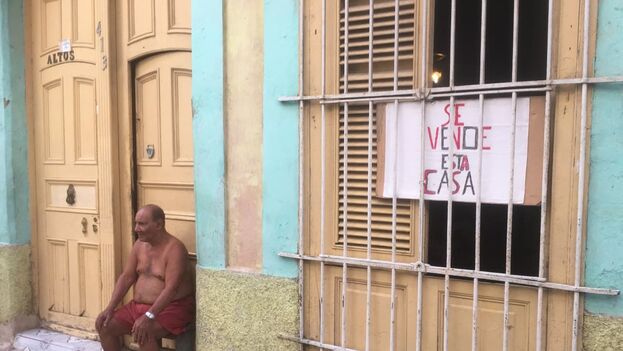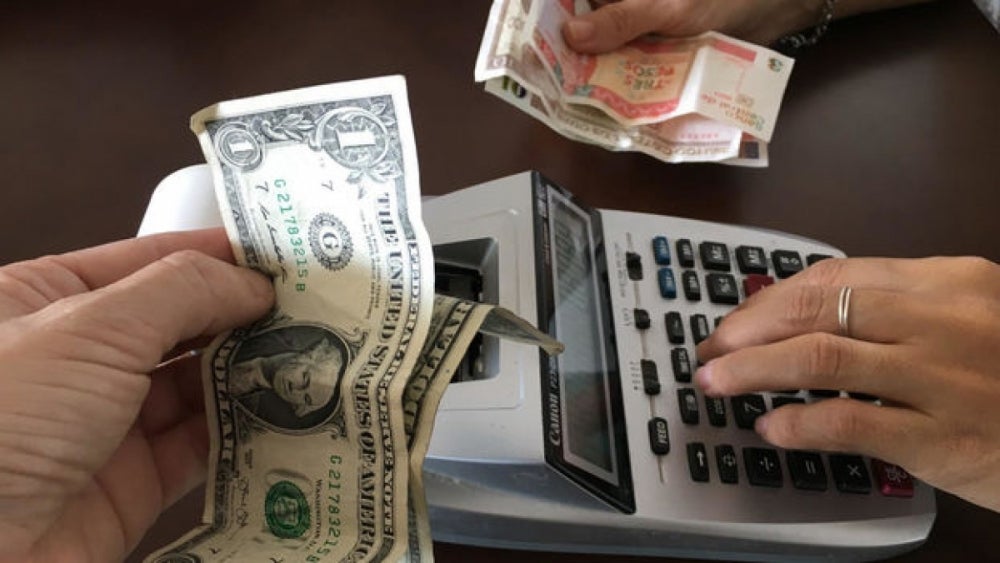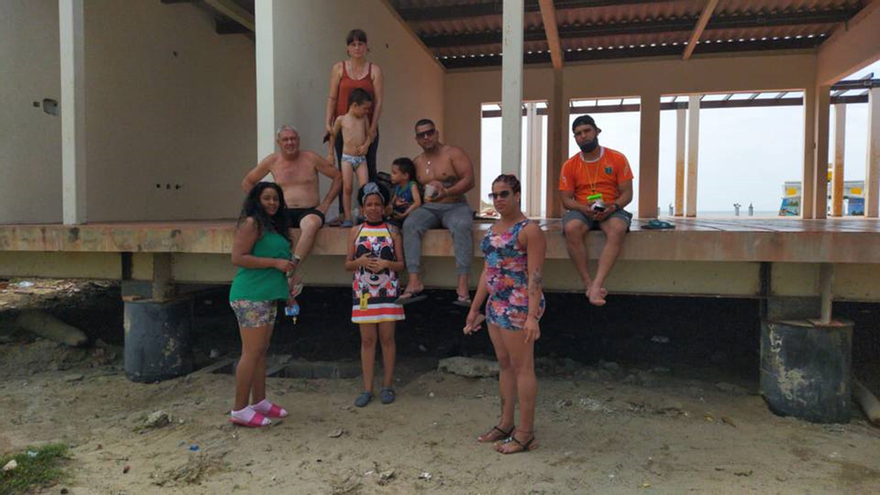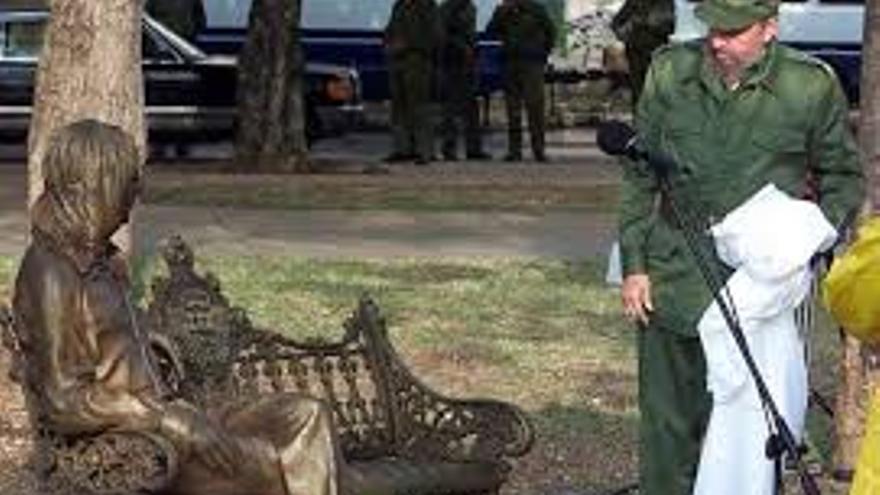About this project and her return to Cuba, Celia González spoke with 14ymedio.
First, I thought of covering all of Central America, but I finally decided to focus on Nicaragua because of the similarities I found, because of having a mythical, authoritarian revolution in the government.
14ymedio: How did you start this meeting between Cuba and Nicaragua from Mexico?
Celia González:I began to come into contact virtually with Nicaraguan artists who explained their work to me and what is happening in their country, which has a very similar context to that of Cuba. Thus, I understood that the art they are producing has radically changed since 2018 due to the April events, which split the country, especially because it radicalized the people’s positions in favor of and against it.
As a consequence, they have stopped exhibiting publicly. What they have done has been outside the country. Many of the works that are being shown here have not been shown in Nicaragua.
14ymedio: What do you perceive in these works in particular?
Celia González:The works should be explained one by one because they respond to affective relationships with the Nicaraguan context. I find it very interesting that the 2018 demonstrations involved rethinking the symbol. They used the Sandinismo slogans against Sandinismo, such as the cobblestone, the flag, the trees of life or the propaganda with Hugo Chávez in neon lights.
14ymedio: And how does that connect with Cuba?
Celia González:What seems interesting to me is that in Cuba, with the MSI and the 27N, there is a symbolic dispute being forged with power from art. The important thing about bringing in this exhibition is that the people who have been mobilizing and fighting for their political and citizen rights here, see that the same thing is happening right next door and they can know what kind of response the artists are giving.
What seems interesting to me is that in Cuba, with the MSI and 27N, a symbolic dispute is being forged with power from art
I think it is something new, because, up to now, the relationship that Cuba and Nicaragua have is at the State level, there is no citizen or civic relationship between the two countries. I’m excited that they dedicated two editions of the Panic fan magazine with MSI and 27N in mind. That connection allows them to learn what is happening here and, for us, what they are living through. Emotionally, it has been a point of support for me, a joy.
14ymedio: Personally, how did you live this experience?
Celia González:I think one of the things that dictatorship and totalitarianism regimes feed on is isolation. In this sense, connecting two realities can be very rewarding and productive all at once to break with that supposed singularity of ours that the State has made us believe in. It has made us think that we are different, better and unique, when in reality we also have femicide, poverty, repression, shortages, hunger, inflation and neoliberalism. The loss of contact has been a strategic move, it has been something thought out.
I believe that a union can be a very powerful thing, and right now we have an opportunity that did not exist before, which is to be present in the networks, and we can create things together without being physically present.
14ymedio: What do you think of what happened the night of 27N in front of the Ministry of Culture, do you think that the presence of people demonstrating in the streets can bring a change in the country?
Celia González:I was in Mexico then, but wanted to be there, in front of the Ministry of Culture. That same November 27th, some students from my university [the Ibero-American, also known as Ibero, of Mexico City] went to make the first demonstration in front of the Cuban Embassy. There were people from State Security filming from inside, although they never came out. Many went despite having been threatened by using their relatives and fearing for the family and the consequences, such as not being allowed to return to Cuba.
Many went despite having been threatened by using their relatives and fearing for the family and the consequences, such as not being allowed to return to Cuba
We played the music of Willy Chirino, Celia Cruz and Maykel Castillo. We went out with our posters; we sang the National Anthem and we were there for a long time. Many of us did not sleep that night, since we were very attentive. For about 15 days before then, I was also very active, very dedicated to collecting signatures of support, doing everything I could.
14ymedio: From Mexico, how were you able to collaborate with your Cuban colleagues?
Celia González: I have an emotional relationship with what went on, beyond what it means, because the people involved were my friends. Anamely is in my postgraduate degree in Anthropology and we managed to get the Ibero to speak out, something that was very difficult.
Ibero is a left-wing Jesuit private university, but at some point, they believed it was fair to support Anamely and they did. The complex thing is that the government has pro-government Cubans there and it was tense, because they were bent on questioning what we were doing. I say tense because many are afraid, we all know what can happen in a case like this, but it had to be done. When you have a friend in trouble, you have to do whatever it takes.
14ymedio: If you had been among the 30 who entered the Ministry of Culture, what would have been your claim at that meeting?
Celia González: My main claim would have been a stoppage of the repression, that they take charge publicly and that they apologize for repressing the citizenry, not only in the art scene, which is, in the end, the mildest, but also the neighborhood black people, such as Silverio or Denis Solís, who do get arrested and beaten up.
It is a request that implies the end of the Government: that there should be a multiparty system, free expression and a structural change to which they do not agree in any way, because it implies giving in. If people acted in unison, everything would be easier.
It is a request that implies the end of the Government: that there should be a multiparty system, free expression and a structural change to which they do not agree in any way, because it implies giving in
14ymedio: Have you taken a turn living through censorship in Cuba?
Celia González: I felt censorship twice. The first was in 2008 at Sandra Ceballo’s house, in the Aglutinador space. They prohibited her from doing the exhibition and publicly called all of us counterrevolutionaries, even before it opened, because they assumed that people from the US Interests Section had been invited. Actually, the group Porno Para Ricardo was going to play there, and it was banned. There are certain people who are banned, and when they come into contact with you, you too become banned, regardless of your work.
People are standing on lines, basically. The neoliberal of the conditions is every man for himself; he who can pay for it, fine, he who can’t, won’t eat
I suffered the other incident of censorship in 2018, when Luis Manuel Otero Alcántara invited us to the #00Bienal. They threatened my mother and it was very dramatic, because it was done by my half-brother, who is a lieutenant colonel of the Minint [Ministry of the Interior], already deactivated. My whole family on my father’s side is in the military, and my half-brother worked at Villa Marista repressing political prisoners. The Ministry of Culture gave him the order to repress me through my mother, which is one of their strategies.
My mother was told that I was going to end up in jail and she ended up with a nervous tic. Now she is in another position, she feels more secure because she sees that other things are happening, that people have more courage and that parents are more supporting.
14ymedio: What caught your attention the most about Cuba after almost two years abroad?
Celia González: Sadness, the lack of a life project, living in the immediacy. This was already there but it has worsened. People are standing on lines, basically. The neoliberal of the conditions is every man for himself; he who can pay for it, fine, he who can’t, won’t eat.
There is a government that places you in an economic and emotional stress situation, and that each time is left with fewer and fewer arguments. It has always wanted to give meaning to sacrifice in the name of a political project, but people of the generation such as father’s who is 80 years old, realized that the credibility of everything was lost, and that produces a lot of sadness. Our parent’s generation is collapsing.
Translated by Norma Whiting
____________
COLLABORATE WITH OUR WORK: The 14ymedio team is committed to practicing serious journalism that reflects Cuba’s reality in all its depth. Thank you for joining us on this long journey. We invite you to continue supporting us by becoming a member of 14ymedio now. Together we can continue transforming journalism in Cuba.
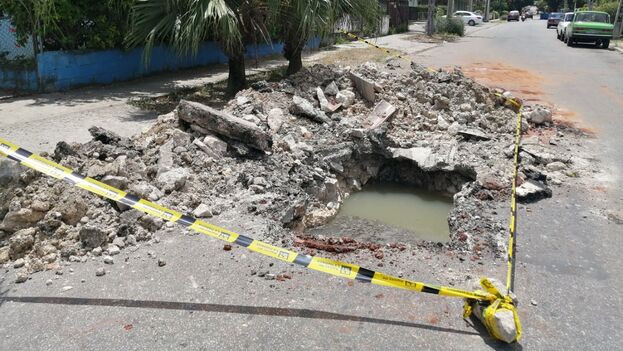
![]() 14ymedio, Havana, 5 February 2021 — On August 20, 2020, the workers of Havana Water opened this hole in Factor Street between Tulipán and Conill in the Havana neighborhood of Nuevo Vedado, with the intention of repairing a leak they had already resolved.
14ymedio, Havana, 5 February 2021 — On August 20, 2020, the workers of Havana Water opened this hole in Factor Street between Tulipán and Conill in the Havana neighborhood of Nuevo Vedado, with the intention of repairing a leak they had already resolved.